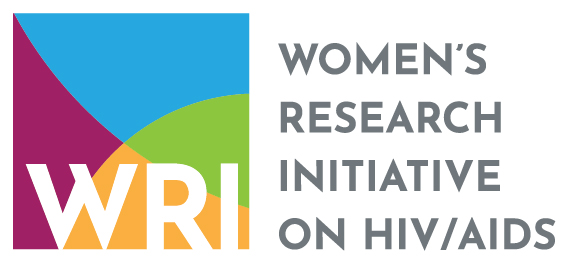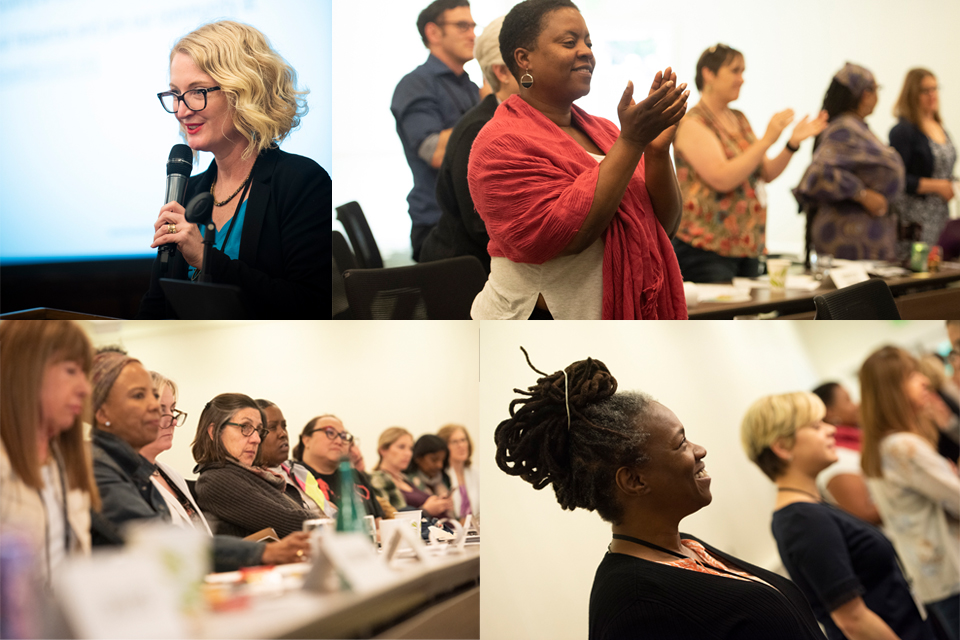The Women's Research Initiative on HIV/AIDS (WRI) conducted its annual meeting May 2-5, 2019. The WRI 2019 meeting, Women Living with HIV over the Long Term and Across the Lifespan, broadly addressed issues related to long-term experiences with HIV across the lifespan, including those relevant to older women who are aging with HIV and younger women who acquired HIV perinatally or as young children and have now been living with HIV for decades.
The WRI 2019 featured a variety of presentations by experts, which reviewed the most recent science on sex differences related to long-term survival with HIV, investigated what is known and unknown about the psychosocial and structural factors influencing the experiences of women over the long term, discussed the role of resilience in long-term survival with HIV, and investigated quality-of-life indicators for women living with HIV over the long term. The meeting focused on the importance of addressing women's lived experiences across all levels of research, policy, and programming. As with all WRI meetings, WRI 2019 also focused on identifying actions that individual WRI members can take to address gaps in research and care related to the long-term health and well-being of women living with HIV.
View the 2019 WRI Issue Brief: Women Living with HIV over the Long Term and Across the Lifespan
View photos from the 2019 WRI meeting on our Facebook page
In the context of current policy initiatives to "end the HIV epidemic," focusing on women who have been living with HIV over the long term makes it clear that viral suppression—the endpoint highlighted in these initiatives—is only one important metric of success. Moreover, viral suppression will not be sustained unless other medical, psychological, and social issues affecting the lives of women are addressed. If we hope to truly change the course of the HIV epidemic, it is imperative to attend to the full range of women's lived experiences at all levels of research, policy, and programming.
The WRI identified a number of research, policy, and advocacy gaps that need to be addressed (please see the WRI 2019 issue brief). The WRI is committed to working collectively with all relevant stakeholders, including WRI members to advance these efforts.
2019 WRI meeting participants
| Erika Aaron, MSN Philadelphia Department of Health |
Ada Adimora, MD* UNC School of Medicine |
| Alison Agwu, MD, ScM Johns Hopkins |
Judith D. Auerbach, PhD* University of California San Francisco |
| Dawn Averitt* Women's Research Initiative on HIV/AIDS |
John Brooks, MD Centers for Disease Control |
| Gina Brown, MSW Southern AIDS Coalition |
Jennifer Bushen, PharmD Janssen Scientific Affairs |
| Cecilia Chung Transgender Law Center |
Jenna Conley* Women's Research Initiative on HIV/AIDS |
| Elizabeth Connick, MD University of Arizona |
Judith Currier, MD, MSc UCLA, David Geffen School of Medicine |
| Antigone Dempsey HRSA/HAB |
Rebecca Denison |
| Dazon Dixon Diallo, DHL, MPH SisterLove, Inc. |
Karine Dube, DrPh UNC Gillings School of Global Public Health |
| Lisa Fitzpatrick, MD, MPH, MPA Promoting Practical Health, Inc. |
Jennifer Kates, PhD* Kaiser Family Foundation |
| Naina Khanna PWN-USA |
Michelle Lopez ACRIA |
| Raven Lopez Caribbean Women's Health Association |
Edward Machtinger, MD University of California San Francisco |
| Krista Martel* The Well Project |
Tonia Poteat, PhD, PA-C University of North Carolina |
| Linda H. Scruggs, MHS Ribbon Consulting Group |
Kathleen Squires, MD Merck & Co Inc. |
| L'Orangelis Thomas Negron | Phyllis Tien, MD University of California San Francisco |
| Vani Vannappagari, PhD, MPH, MBBS ViiV Healthcare |
Fulvia Veronese, PhD* DAIDS, NIAID, NIH |
| Celeste Watkins-Hayes, PhD Northwestern University |
Shannon Weber, MSW UCSF/HIVE, Please PrEPMe.org |
| Andrea Weddle, MSW HIV Medicine Association |
Charles Wira, PhD Geisel School of Medicine at Dartmouth |
| Julie Womack, PhD Yale School of Nursing |
*2019 Advisory Board Member





